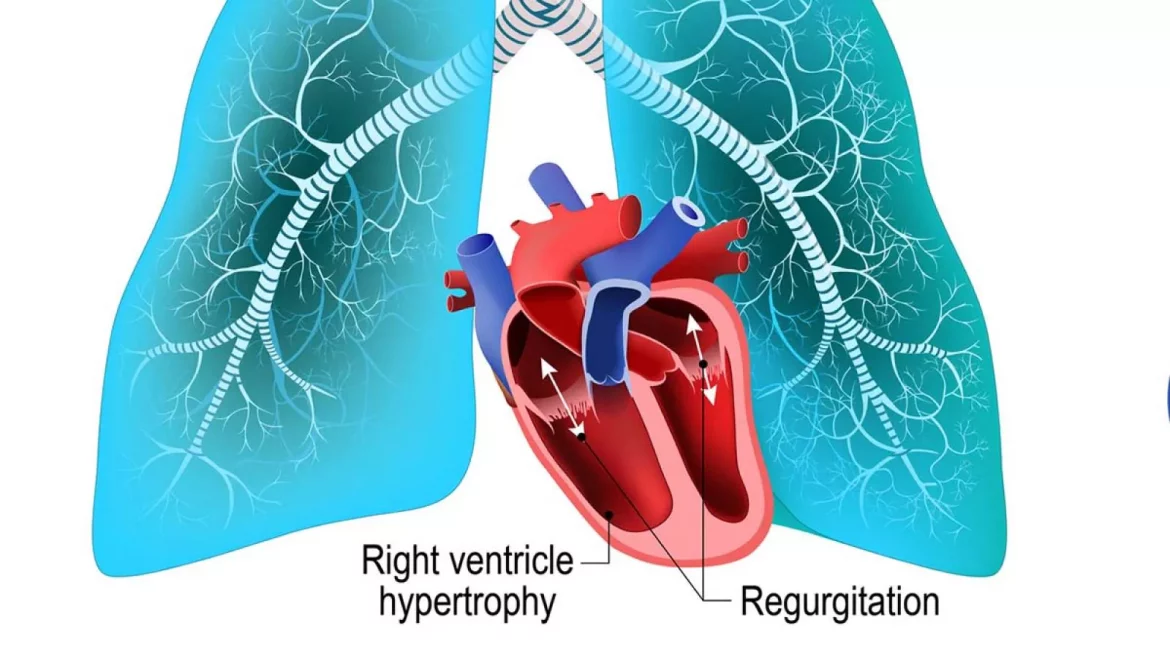Hypertension, commonly known as high blood pressure, is a prevalent health condition affecting millions worldwide. It is often referred to as a “silent killer” because it can cause significant harm without noticeable symptoms. However, when hypertension advances and becomes severe, it can manifest through several warning signs that should not be ignored. This article delves into the essential details of advanced hypertension, highlighting key warning signs, potential health complications, and the importance of timely intervention.
Introduction to Hypertofng pnsion
Hypertension occurs when the force of the blood against the walls of the arteries remains high over time. It is typically diagnosed when blood pressure readings consistently exceed 140/90 mmHg. Advanced hypertension, often classified as stage 2 hypertension or higher, involves blood pressure that usually exceeds 160/100 mmHg. At this stage, the risks of cardiovascular and other systemic complications increase significantly.
The Silent Nature of Hypertension
One of the primary dangers of hypertension is its asymptomatic nature in the initial stages. Many individuals with high blood pressure do not experience overt symptoms until the condition has progressed to a more severe stage or led to other health issues. This silent progression can lead to undetected damage to vital organs, emphasizing the importance of regular blood pressure monitoring.
see also: what causes fluctuating high and low blood pressure
Warning Signs of Advanced Hypertension
When hypertension reaches advanced stages, it can begin to manifest through various symptoms and signs. Recognizing these can be crucial for preventing severe complications:
1. Severe Headaches
Frequent, intense headaches can occur when hypertension reaches a critical level. These are often called “hypertensive headaches” and tend to occur in the early morning, possibly due to overnight blood pressure changes.
2. Visual Disturbances
Blurred vision, floaters, and even temporary loss of sight can suggest damage to the retina caused by high blood pressure.
This condition, known as hypertensive retinopathy, requires immediate medical attention.
3. Chest Pain
Chest pain or discomfort, particularly during physical activity, may indicate that high blood pressure is affecting the heart.
This symptom should always be evaluated promptly as it can also signal impending heart attack or other cardiac conditions.
4. Difficulty Breathing
Shortness of breath, especially during routine activities that previously caused no issues, can be a sign of heart damage or heart failure induced by prolonged, uncontrolled hypertension.
5. Nosebleeds
While nosebleeds can be common and caused by various factors, frequent and severe nosebleeds may be associated with advanced hypertension, especially when other symptoms are also present.
6. Irregular Heartbeats
Palpitations or feeling that the heart is pounding or fluttering irregularly can be a sign of hypertensive heart disease.
Hypertension can cause the heart to work harder, which in turn may lead to arrhythmias.
7. Fatigue or Confusion
Unexplained feelings of fatigue, confusion, or changes in cognitive function can occur if hypertension is affecting cerebral circulation.
These symptoms require immediate medical evaluation.
8. Blood in the Urine
The presence of blood in the urine may indicate kidney damage from high blood pressure. Kidneys filter excess fluid and wastes from your blood, and hypertension can impair this function, leading to renal complications.
Complications of Uncontrolled Hypertension
Ignoring the warning signs of advanced hypertension can lead to several severe health issues:
Cardiovascular Diseases
These include heart attack, heart failure, and aneurysms. The increased pressure can cause the heart muscle to thicken and become less efficient, eventually leading to heart failure.
Stroke
Hypertension is a leading cause of strokes. It can cause blood vessels in the brain to clog more easily or even burst, leading to a stroke.
Kidney Disease
The kidneys can be severely damaged by high blood pressure, leading to kidney failure which may require dialysis or kidney transplantation.
Peripheral Arterial Disease
This condition, which results in reduced blood flow to the limbs, can cause pain and mobility issues.
Eye Damage
Hypertension can damage the delicate vessels of the retina, potentially leading to blindness.
Preventing and Managing Advanced Hypertension
Effective management and prevention of hypertension require a multifaceted approach:
Regular Monitoring
Frequent blood pressure checks are essential, especially for those with a family history of hypertension or personal risk factors.
Lifestyle Adjustments
Dietary changes, regular physical activity, moderating alcohol consumption, quitting smoking, and maintaining a healthy weight are crucial.
Medication
In many cases, lifestyle changes need to be supplemented with medications. Various classes of d
rugs are used to manage high blood pressure, including ACE inhibitors, diuretics, beta-blockers, and calcium channel blockers.
Stress Management
Chronic stress is a significant factor in hypertension. Techniques such as mindfulness, yoga, and other relaxation strategies can be effective.
Conclusion
Recognizing the warning signs of advanced hypertension is crucial for early intervention and preventing severe health complications. Regular medical check-ups, lifestyle management, and adherence to prescribed medication regimens are key components in managing hypertension effectively. Awareness and proactive health management can significantly reduce the risks associated with this potentially life-threatening condition.

